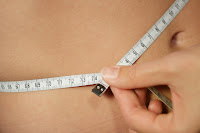Learning how to lose weight with your partner isn’t just a matter of counting calories. Whether you and your partner are both trying to lose weight, or you’re struggling how to lose weight with your thinner partner around - learning how to lose weight as a couple will give you the support you need to meet your weight loss goals. Support in the form of a cheerleader isn’t enough (although you might like to see your partner in a cheer leading outfit). Communication, respect, understanding, patience, and love all have an important part in the dieting game.
If you’re engaged, you might want to study how to lose weight with your partner before you exchange your “I do have.” Getting married and gaining weight go hand in hand. A study in Psychology Today found that women carried an extra 37 pounds IF they were happily married. Women who were unhappily married must have found their comfort in food, because they gained an average of 54 pounds. The study also showed that the majority of women who wanted to lose weight thought it would help them keep their husbands, or at least liven up their sex life. Women aren’t the only weight victims in marriage though. A Cornell University study pointed out that men gain more weight than women during marriage. Fortunately, a study done by the University Department of Medicine, Royal Perth Hospital, Australia, found that the couples that diet together lose weight together.
Learning how to lose weight together means you must communicate about your weight loss plans. You’re going to have to communicate on how your shopping, cooking and eating plans will change, what dietary substitutes will have to be made, which aspect of the dieting will be most difficult, and what kind of support you would like from each other. What one partner may see as “reminding,” another may see as “nagging.” As you’re following your weight loss plans, make sure you keep the lines of communication open, and share your frustrations and aggravations, as well as your congratulations with each other. Having respect for each other is one of the most important things you can do to successfully lose weight together. Encourage your partner to lose weight; don’t condemn them if they have a relapse during their dieting. Don’t tempt them with food they can’t have. Scientific studies have proved over and over again that self-confidence is a huge factor in how to lose weight without putting it back on.
How to lose weight with your partner is just a matter of loving and supporting each other. Building each other up, with or without the cheer leading outfits on, is a great way to help each other lose weight. Coupling up on the same weight loss plan, such as the Atkins Diet Weight Loss Program, which allows substantial proportions, is a great way to make meals feel as if they are still a substantial entrée, and not just a plate of rabbit food. Losing weight with your partner gives you a stronger guarantee that you’ll lose the weight, and keep it off. Gain together, lose together, and live happily ever after - because everything is easier when you’re in love.




